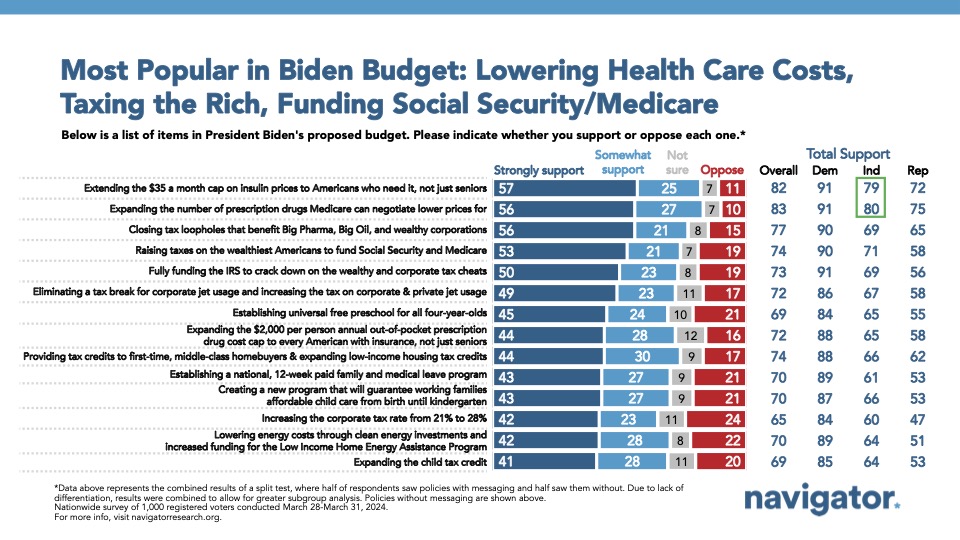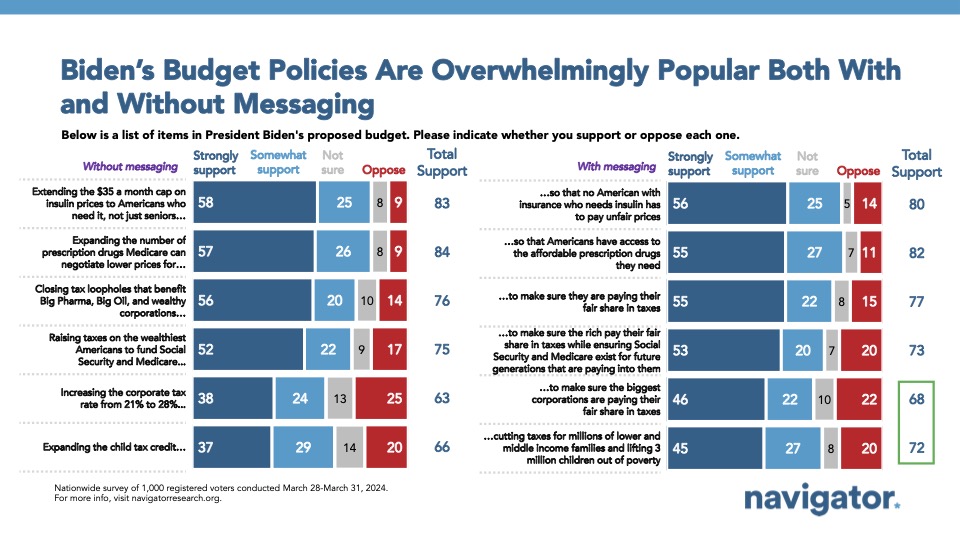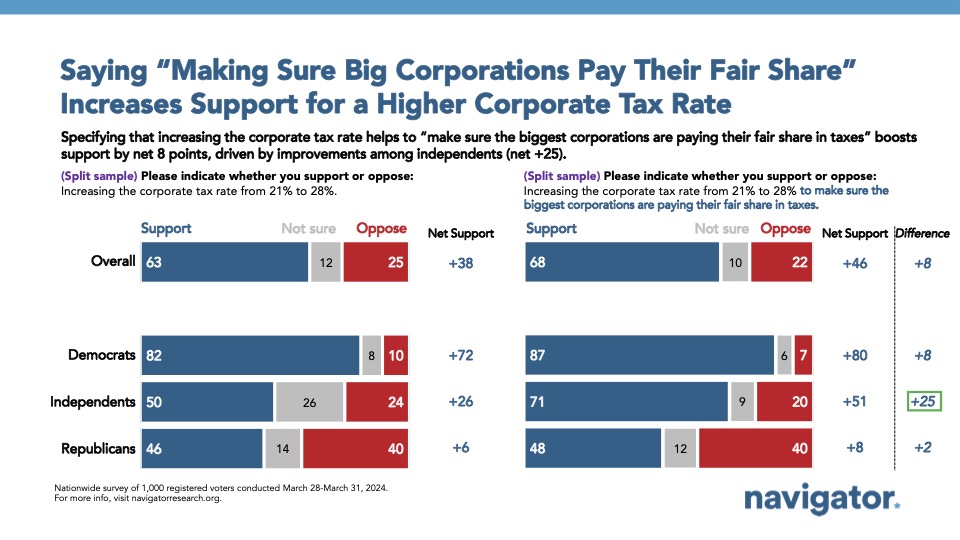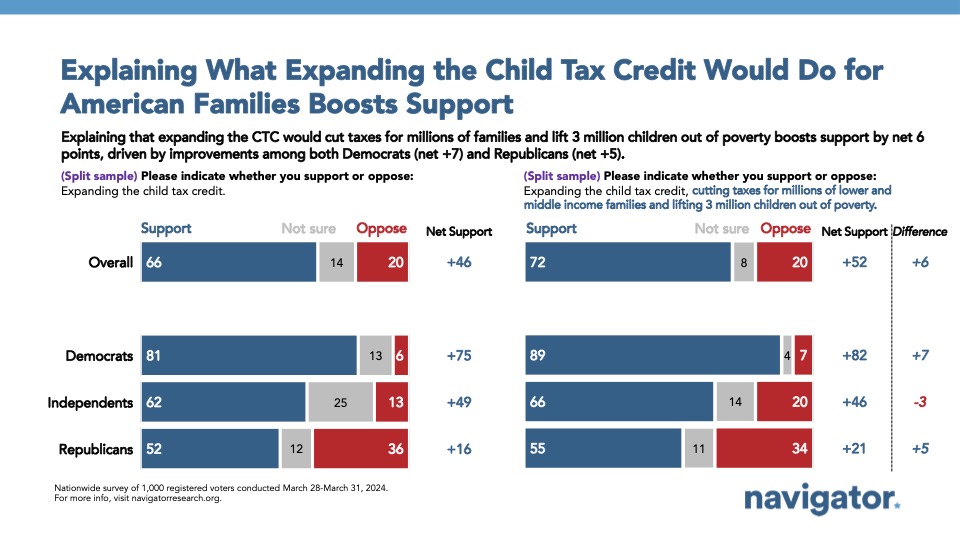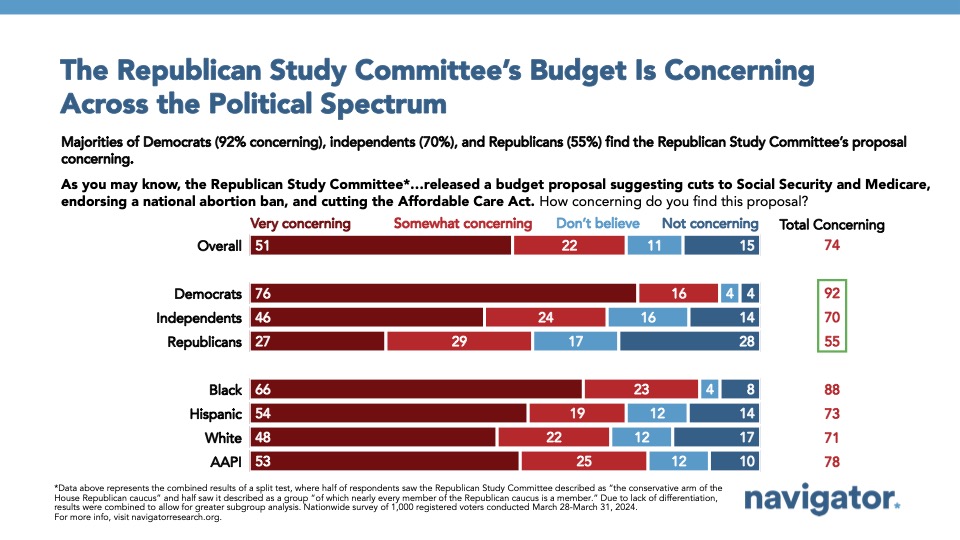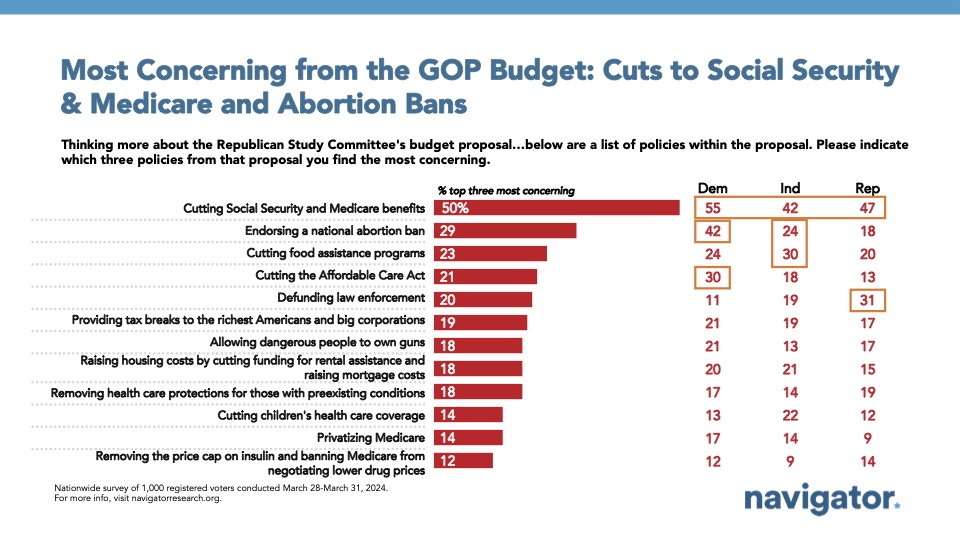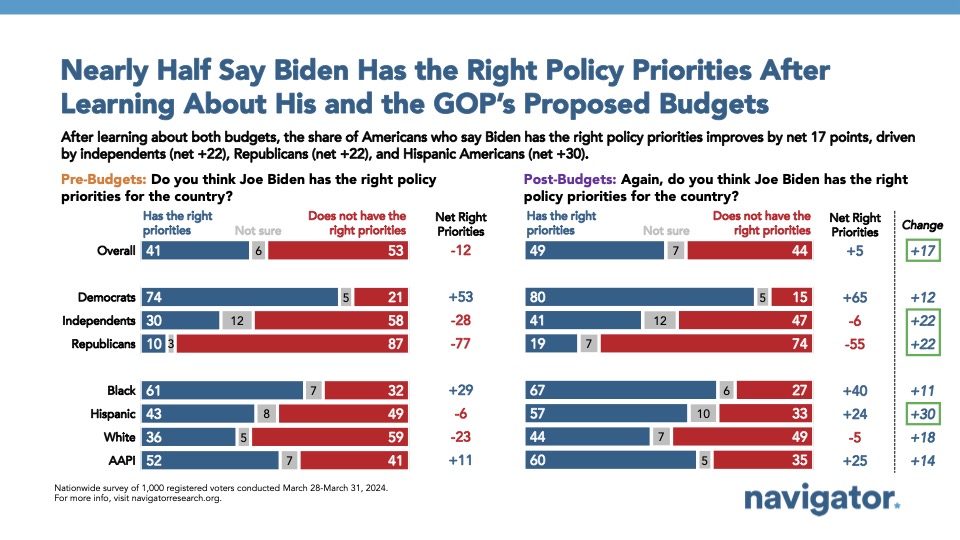Poll: President Biden’s Federal Budget
This Navigator Research report contains polling data on how Americans view different parts of the Biden administration’s proposed federal budget, how they view the Republican Study Committee’s proposed budget, and how learning about both budget proposals impacts perceptions of President Biden’s policy priorities for the country.
The most popular parts of President Biden’s budget include lowering
health care costs, taxing the rich, and funding Social Security and
Medicare.
Two of the most popular parts of Biden’s proposed budget are “extending the $35 a month cap on insulin prices to Americans who need it, not just seniors” (net +71; 82 percent support – 11 percent oppose) and ”expanding the number of prescription drugs Medicare can negotiate lower prices for” (net +73; 83 percent support – 10 percent oppose).
- Both proposals earn support from more than seven in ten Republicans (72 percent for extending the cap on insulin prices; 75 percent for expanding the number of drugs Medicare can negotiate lower prices for).
- About three in four Americans are also supportive of “closing tax loopholes that benefit Big Pharma, Big Oil, and wealthy corporations” (net +62; 77 percent support – 15 percent oppose) And “raising taxes on the wealthiest Americans in order to fund Social Security and Medicare” (net +55; 74 percent support – 19 percent oppose).
- In most cases, support for the key elements of President Biden’s budget were the same whether you included narrative text about the budget or simply the policy statement including the top testing ones about prescription drugs. However, in two examples, including messaging actually improved support: (a) talking about increasing the corporate tax rate from 21 percent to 28 percent “to make sure the biggest corporations are paying their fair share in taxes” (which improved from 63 percent support without messaging to 68 percent support with messaging) and, (b) expanding the Child Tax Credit, “cutting taxes for millions of lower and middle income families and lifting 3 million children out of poverty” (which improved from 66 percent support without messaging to 72 percent support with messaging).
The Republican Study Committee’s proposed budget concerns three in four Americans, including a majority of Republicans.
Over seven in ten Americans were concerned about the Republican Study Committee budget proposal that includes cutting Social Security and Medicare, endorsing a national abortion ban, and cutting the Affordable Care Act (74 percent, including 51 percent who find it “very” concerning), including over nine in ten Democrats (92 percent), seven in ten Independents (70 percent), and a majority of Republicans (55 percent). 74 percent of Americans find the Republican Study Committee’s proposed budget concerning, including a majority who find it “very” concerning (51 percent). However, only 18 percent of Americans had heard at least some news of the Republican Study Committee’s proposed budget, with independents having the lowest level of awareness (13 percent who have heard at least “some”).
- When asked to pick their top three concerns surrounding the Republican Study Committee’s proposed budget, the proposed cuts to Social Security and Medicare ranked highest (50 percent), including pluralities of Republicans and independents (47 percent and 42 percent, respectively). The next top concerns included that it endorses a national abortion ban (29 percent), cuts food assistance programs (23 percent), and cuts the Affordable Care Act (21 percent).
A plurality believes President Biden has the right policy priorities after learning more about both his administration’s budget and the Republican Study Committee’s budget.
After learning about both the Biden budget and the Republican Study Committee’s proposed budget, the belief that President Biden has the right policy priorities for the country increases by a net 17 points (from net -12 to net +5; 49 percent has the right priorities – 44 percent does not have the right priorities).This includes by a net 22-point increase among both independents (from net -28 to net -6) and Republicans (from net -77 to net -55).
About The Study
Global Strategy Group conducted public opinion surveys among a sample of 1,000 registered voters from March 28-March 31, 2024. 100 additional interviews were conducted among Hispanic voters. 75 additional interviews were conducted among Asian American and Pacific Islander voters. 100 additional interviews were conducted among African American voters. 100 additional interviews were conducted among independent voters. The survey was conducted online, recruiting respondents from an opt-in online panel vendor. Respondents were verified against a voter file and special care was taken to ensure the demographic composition of our sample matched that of the national registered voter population across a variety of demographic variables.

